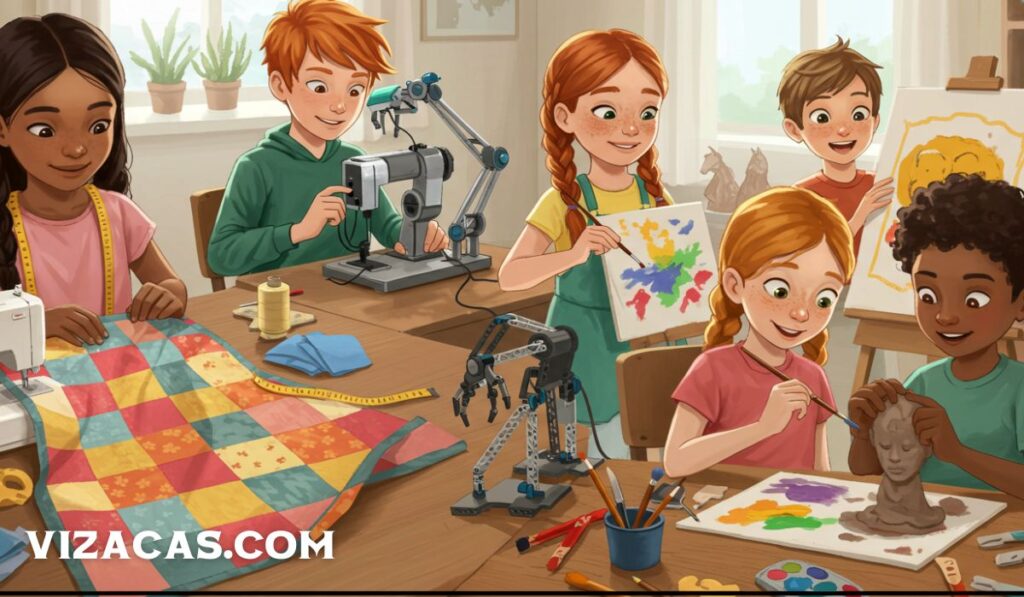Certainly, adults can easily view collecting objects as childish and unimportant. However, it can be great fun for kids to prepare a series of items they would love to possess and lay their hands on. Apart from being an enjoyable pastime, collection can become children’s way of discovering themselves, learning to be innovative in what they do, and receiving skills that can benefit the future. This article discusses the advantages of kids’ collecting interests, feasible approaches for promoting these interests, and how the issues concerning such interests may be handled.
Why Gathering Interests Are Good for Children
Gathering is not only fun nowadays; it is beneficial in so many ways for the children who are into it. Here are some of the benefits mentioned above.
1. Most people recognize the importance of developing organizational skills at work, but hardly anyone disagrees. One of the elements that children naturally learn once they start collecting is organization. Whether it is a small collection of trading cards or memories of family trips arranged in boxes, the organization of the things makes them learn how to sort things. This skill is invaluable later in life, especially at the academic and professional levels of education.
2. Teaching Responsibility
Teaching a child to pick things encourages them to take responsibility. Children treat these items as their ‘crown jewels,’ enabling them to pay due attention to preserving those items. This habit prepares them for the responsibilities when they grow up.
3. A few things can teach a child, like curiosity; thus, the importance of research comes into the picture. Children are intrinsically learners, and collectors provide them with something, motivating them to continue investigating. For example, when a child has accumulated a new coin to their collection, they may wish to know more about it or where it was minted. It is this curiosity that assists in the development of their research skills, which is important for academic and future success.
4. Building Storytelling Skills
Stories are associated with every piece in any collection, beginning with its origin, the circumstances of its acquisition, or its meaning. When kids share these stories, they have to tell a story to someone, and they are building confidence and speaking abilities.
5. Teaching Financial Management
Being able to budget is another important thing people learn from collecting. Children who have a list of items they want to buy save to cater for such items understand or are ready to understand budgeting, price differentials, and financial goals. They enable them to foster a good financial personality and one lifetime of financial planning.
How to Support Your Child’s Collecting Interest
Bearing this in mind, there’s a lot that a parent or caregiver can do to nurture collecting as a hobby. Here are five practical ways to inspire and support your child’s collecting interests:
1. Provide Tools and Resources
Consider shelves, boxes, or display cases to help your child display the collection best. It is also possible to share books, applications, or resources related to the chosen topic to develop their passion and curiosity.
2. Lead by Example
If you enjoyed collecting things when you were young, tell your kids about it. You are creating a positive environment because people can catch your energy. If you have never made one, consider making one together with your child; it’s fun and will help them work harder.
3. Encourage Exploration
Go somewhere where the child could look for some objects for their collection. Museums, flea markets, nature trails, or used clothing sales are perfect places to discover.
4. Celebrate Their Progress
Thoroughly pay attention to your child’s collection and affirm the work they have put into it. Something as basic as saying, “I like your organization on your collection,” will help motivate them to keep up the good work.
5. Involve Them in Decisions
You can help your child decide what they should keep or discard about their collection during their learning process of evaluating collections. For example, you may want to pose questions such as, “Which items do you think are too big for you?” or “Which clothes would you like to give out?” This approach helps them make good decisions while not dampening their desire.
Overcoming Common Challenges
A collection of hobbies can be a lot of fun, but it does not come without difficulties. Here are some common issues and how to address them:
1. Space and Organization
An ever-growing collection is likely to overgrow your house if well-handled or contained. Help your child use label boxes, shelves, or any other storage containers so as not to have the items displayed.
2. Maintaining Interest
Children get bored easily. To keep this enthusiasm going, you can encourage them to give some or all of the story about their collection or search for new ones. It helps maintain their relationship with the hobby.
3. Budget Constraints
Being an art enthusiast does not always require you to be a moneybag. Have them look for small objects at home, or if they go to a beach, maybe shells, or outside in their garden, press flowers.
This helps keep the hobby fun, as you do not spend much money holding one’s loved ones.
Conclusion
Collecting hobbies goes beyond merely creating amusement for children because they are toolboxes for self-improvement, self-fulfillment, and education. Curiosity and responsibility, as well as organizational and financial skills all of these or many other similar values can be mentioned among the perks of collecting that certainly do not end in childhood. Thus, building the collection may be a less fulfilling journey characterized by subjection to constraints like space or budget when it can be done easily. Encouraging your child’s interests and helping them make decisions means their choices are the building blocks of their future. Help your child to begin their collection from today; it can be a valuable part of childhood and after childhood life.
